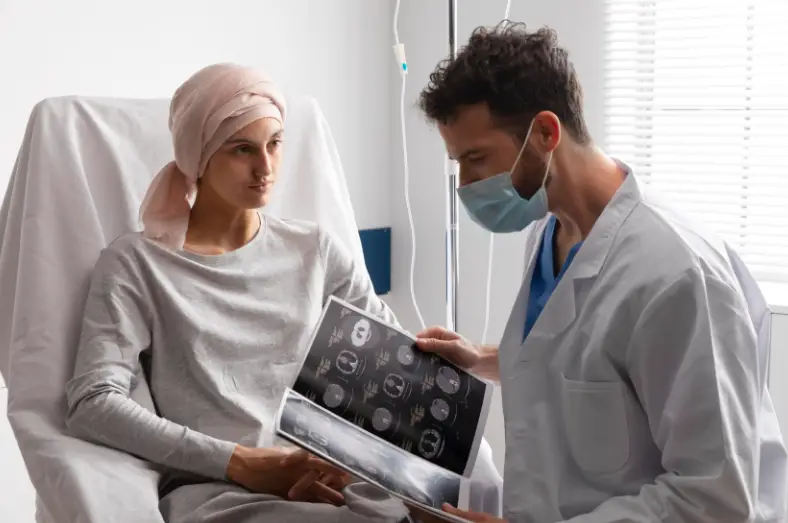The Impact of Multidisciplinary Approaches in Oncology: Perspectives from Cancer Centers

The oncology landscape has undergone remarkable changes, significantly emphasising multidisciplinary approaches. At the forefront of these advancements, any renowned Cancer Centre around the globe has played a pivotal role in pioneering treatments that extend life and enhance its quality for those diagnosed with cancer. These institutions serve as beacons of hope, merging diverse fields of expertise to combat one of humanity’s most formidable diseases.
The Essence of Multidisciplinary Teams
A cornerstone of modern oncological practice, the multidisciplinary team (MDT) approach integrates the skills and knowledge of specialists from various fields. This collaborative strategy ensures that patient care is comprehensive and tailored, addressing patients’ complex needs. These teams offer a holistic view of patient care by bringing together oncologists, surgeons, radiologists, pathologists, and nurses, ensuring no aspect of the disease is overlooked.
Advancements in Personalised Medicine
With a deepening understanding of the ailment’s genetic underpinnings, personalised medicine has emerged as a key player in enhancing treatment outcomes. This paradigm shift towards tailoring treatments to individual genetic profiles underscores the importance of a multidisciplinary approach. It facilitates the integration of genetic counselling and testing, targeted therapies, and precision diagnostics, paving the way for treatments as unique as the patients.
Technological Innovations and Their Integration
The rapid advancement of technology has provided oncology teams with tools that were once deemed the stuff of science fiction. Technology has become an indispensable ally, from robotic-assisted surgeries offering unprecedented precision to AI-driven diagnostics that can predict treatment responses. These innovations augment the capabilities of healthcare professionals and ensure that treatment is less invasive and more effective, significantly contributing to patient recovery and quality of life.
The Role of Patient Support Services
An often overlooked aspect of cancer care is the emotional and psychological support required by patients and their families. Recognising this, multidisciplinary teams extend beyond medical treatment to include social workers, psychologists, and patient advocates. These support services are crucial in addressing the mental health challenges associated with the condition, ensuring patients have access to the resources needed to navigate their journey with strength and dignity.
Bridging the Gap with Research and Clinical Trials
Research and clinical trials are the engines driving innovation in oncology. By actively participating in cutting-edge research, multidisciplinary teams at cancer treatment centers contribute to the global body of oncological knowledge and ensure patients can access the latest treatments. This symbiotic relationship between research and clinical care is essential for continuously improving therapies and offers hope for future breakthroughs.
Integrating Nutrition and Lifestyle Interventions
Including nutritionists and lifestyle coaches in the team highlights the recognition of holistic health as a key to improving treatment outcomes. These professionals work alongside medical practitioners to tailor dietary and exercise plans that support patients’ overall well-being during and after treatment. Nutrition and lifestyle interventions can mitigate treatment side effects, enhance recovery, and even reduce the risk of recurrence, embodying the adage that food is medicine.
Emphasis on Survivorship and Quality of Life
Survivorship care is an essential component of the multidisciplinary approach, focusing on the health and life of a person post-treatment. This aspect of care plans for the long-term effects of the issue and its treatment, including physical, emotional, and social challenges. Teams comprising various specialists develop personalised survivorship plans, ensuring that survivors can transition smoothly to life after cancer, with ongoing support to maintain their quality of life.
Harnessing the Power of Digital Health Platforms
Digital health platforms have revolutionised oncology care delivery and reception. These platforms facilitate remote monitoring, teleconsultations, and digital health records, making healthcare more accessible. Patients can now receive timely consultations, manage appointments, and access their treatment plans from the comfort of their homes. This technological integration ensures continuity of care and enhances patient engagement and compliance with treatment protocols.
Fostering Patient Empowerment and Education
Empowering patients with knowledge about their situation and treatment options is a critical strategy in multidisciplinary care. A Cancer Centre increasingly prioritises patient education, offering resources, workshops, and support groups that help patients make informed decisions about their care. This empowerment helps demystify the treatment process, reduce anxiety, and build a collaborative relationship between patients and their care teams, ensuring that patients are active participants in their journey to recovery.
The Future is Collaborative
Oncology’s trajectory is headed toward increasingly collaborative approaches. Integrating diverse specialties, cutting-edge technologies, and compassionate support services underlines the paradigm shift in cancer care. Clinics champion these multidisciplinary strategies, which underscore the commitment to not just fighting the disease but also nurturing the human spirit, affirming life’s value at every stage of treatment.
The evolution of oncology underscores the importance of interdisciplinary collaboration. Merging diverse expertise with advanced technology enhances patients’ outcomes, shifting the focus from mere survival to thriving. This relentless pursuit of excellence and compassion transforms cancer care, paving the way to a future where the ailment’s impact is significantly diminished.
